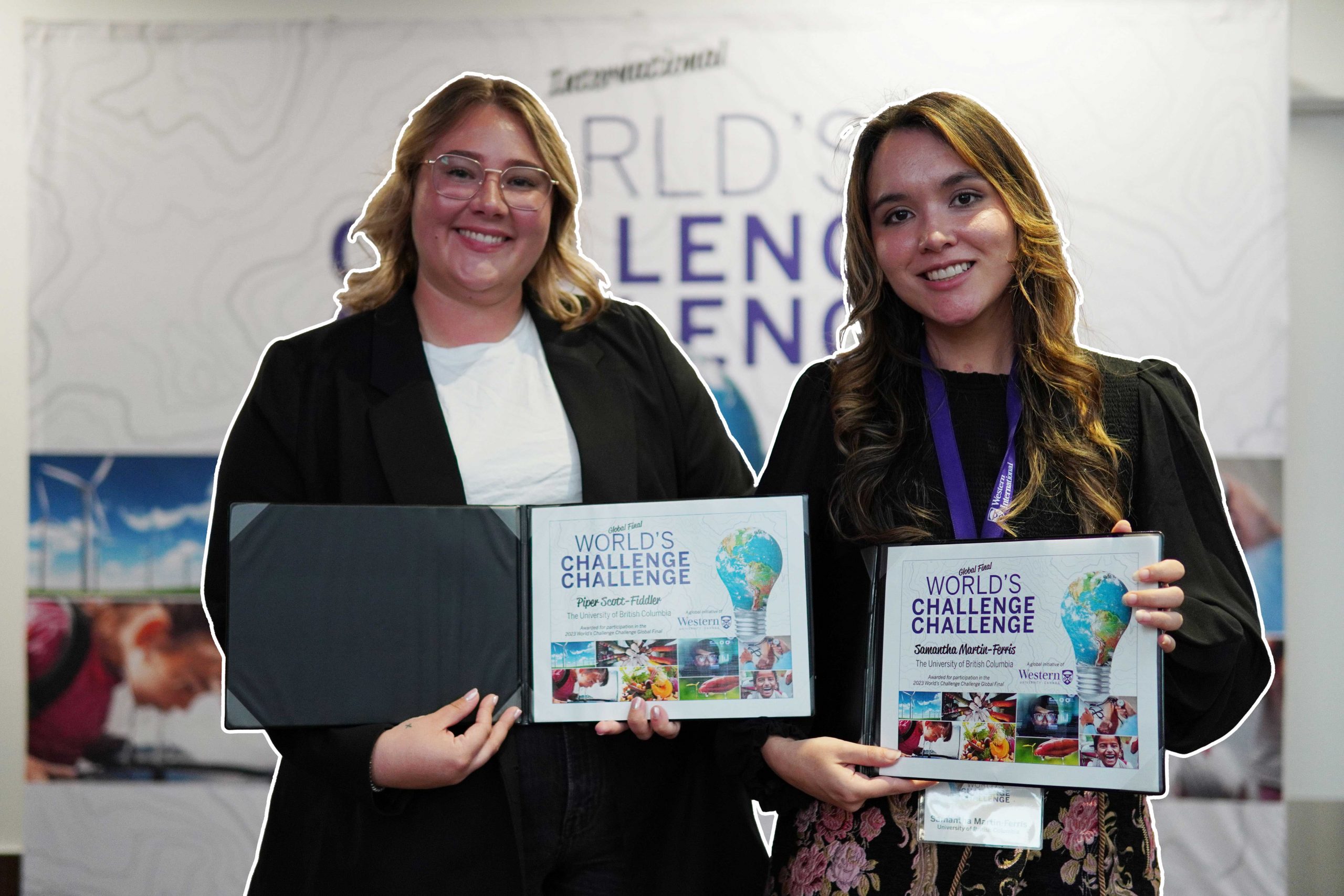
Piper Scott-Fiddler and Samantha Martin-Ferris holding their World’s Challenge Challenge certificates. Photo courtesy of the University of Western Ontario.
Two UBC faculty of medicine students have developed a tool to help improve access to sexual health care for Indigenous women.
Piper Scott-Fiddler (she/her) and Samantha Sage Martin-Ferris (she/her), who are both Indigenous and master’s students in the faculty of medicine’s women+ and children’s health sciences program, developed the Lifegiver Box to help reduce harm against Indigenous people and empower them to have autonomy over their health care.
In this Q&A, Scott-Fiddler and Martin-Ferris discuss their creation, which recently which won first place at the World’s Challenge Challenge.
What is the Lifegiver Box?
Martin-Ferris:The Lifegiver Box is a collaborative service that encourages Indigenous communities to take control of decisions about their sexual and reproductive health. The box is unique to needs of each community, and includes basic sexual health products that do not require a doctor’s prescription such as condoms, Levonorgestrel (Plan B), menstruation products, pregnancy tests and educational pamphlets. We also included Indigenous traditional medicines, teas and herbs in consultation with Elders.
Scott-Fiddler: We had consultations with the First Nations Health Authority (FNHA) and Indigenous groups to determine what would be included in each box. Through these discussions, we realized that each Indigenous community has distinct health care challenges and that it’s important for the communities to choose products that would best address their needs.
Where did the idea for the Lifegiver Box come from? Why did you want to create it?
Martin-Ferris: We are currently working on the Story Project, which seeks to capture Indigenous people’s experiences when accessing health care in Canada. While working on this project, we noticed that there is a huge gap in the number of health-care services available to Indigenous communities, especially in sexual and reproductive care, and we wanted to change that.
The box was also developed as an answer to the Senate of Canada’s 2022 report titled The Scars that We Carry, which acknowledged that Indigenous women in Canada are still being forcibly sterilized. As Indigenous women, this is a greatly important project to us as it is a means of giving back to Indigenous communities by reducing systemic harm against Indigenous bodies.
Scott-Fiddler: Our aspiration for the Lifegiver Box is to support Indigenous communities in determining their own sexual health priorities. Colonization and the systemic mistreatment of Indigenous people often results in them facing stigma when accessing health care, making them hesitant to use these services. We are hopeful that the production of this collaborative box and open discussions about sexual health will help to reestablish trust and foster a more promising future.
What are your future plans for the Lifegiver Box after winning the World’s Challenge Challenge?
Martin-Ferris: So far, Indigenous communities seem excited about this program! We received $30,000 from our World’s Challenge Challenge win, which we hope to establish our pilot program and involve more Indigenous communities. We also plan to apply for federal funding so that more communities can access the Lifegiver Box.
Scott-Fiddler: Over the next five years, we hope to establish 26 different locations across B.C. where Indigenous people can access the Lifegiver Box. We want to provide opportunities for Indigenous people in both rural and urban communities to take control of their sexual health needs.
How can people get involved?
Martin-Ferris: The Lifegiver Box does not work without community collaboration. We encourage Indigenous people who have suggestions on items to include in the Box to reach out to us. We also ask that non-Indigenous health-care providers are supportive of Indigenous people’s access to health care and work to decolonize their spaces and practices for Indigenous people.
Anyone interested in learning more about the Lifegiver Box can contact Scott-Fiddler and Martin-Ferris at pscottfi@student.ubc.ca and sammf@student.ubc.ca.